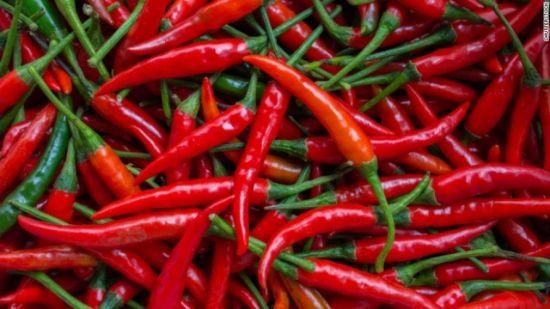Spicy food prolongs life
New research suggests that eating "fiery" foods like chili peppers could help us live longer.
There is a growing body of evidence from experimental studies that suggests that spicy foods or the ingredients in spicy foods have positive effects on human health.
As a result, researchers from the Chinese Academy of Medical Sciences studied data collected through self-reported questionnaires, analyzing spicy food consumption of nearly half a million people aged 30 to 70 across different regions in China, excluding those with cancer, heart disease, and stroke.
 |
| Research shows that spicy foods can help increase longevity. |
They then looked at the records of 20,224 people who died over a period of seven years and found that people who ate spicy food six or seven times a week had a 14% lower risk of dying early from natural causes than those who ate spicy food less than once a week. People who regularly consumed foods rich in spices also showed a reduced risk of dying from cancer or ischemic heart disease and respiratory diseases.
Researchers are interested in the benefits of capsaicin, a bioactive component in chili peppers, which has been linked to health benefits like increased fat burning. Folk medicine also says capsaicin can help fight infections and stimulate the kidneys, lungs, and heart.
There are only a few risks associated with eating spicy foods. Spicy foods can also aggravate colds or sinus infections, increase your runny nose, and can sometimes put pressure on your bladder, causing leakage symptoms.
There are many ways to incorporate spicy foods into your diet without overdoing it. Additionally, consuming other spices can also lead to the same health benefits as chili peppers because spicy foods have high concentrations of phenolics, which are chemicals with nutritional and anti-inflammatory properties.
According to Public Health
